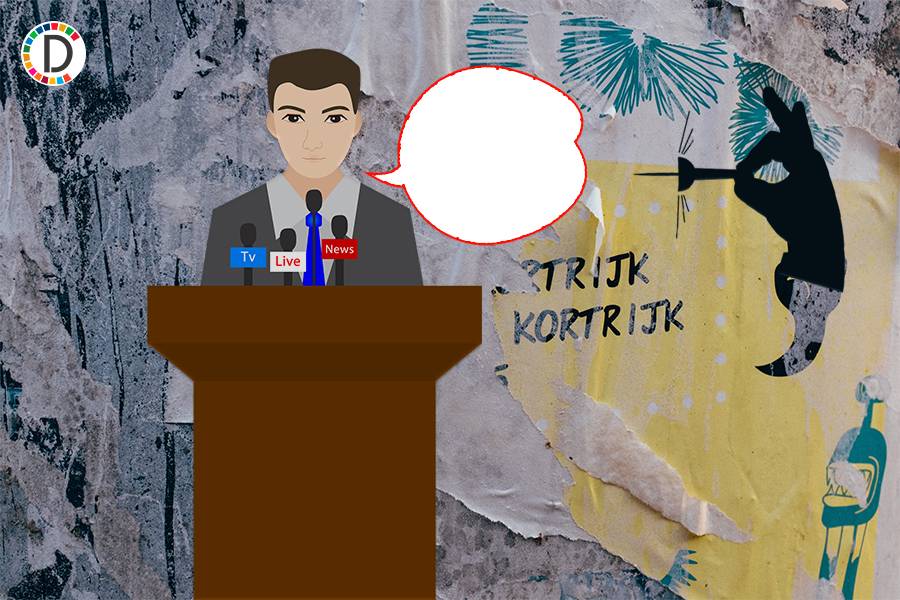Somali legislature in dispute over extension of presidential term
Somalia's lower house of parliament voted on Monday to extend the president's term for another two years but the Senate rejected it - a standoff deepening divisions that analysts say are hampering the fight against Islamist insurgents.

Somalia's lower house of parliament voted on Monday to extend the president's term for another two years but the Senate rejected it - a standoff deepening divisions that analysts say are hampering the fight against Islamist insurgents. The chamber's speaker said the measure extending President Mohamed Abdullahi Mohamed four-year year term, which had expired in February, would let the country prepare for direct elections.
But the opposition said the move was legally dubious and accused the lawmakers of political chicanery. The Senate rejected the move. "The decision directly violated the rules of governance and the constitutional law of the country," Senate speaker Abdi Hashi Abdullahi said in a statement.
The political crisis threatens to split the security services and deepens Somalia's divisions, distracting attention from the fight against the Islamist al Shabab insurgency which has killed thousands of civilians in the region in the past 12 years. Mohamed Abdullahi Mohamed, a former U.S. civil servant who had previously served as prime minister of Somalia, was selected by legislators in 2017. Residents celebrated his promises to crackdown on corruption and ensure soldiers were paid.
Five years earlier, African Union peacekeepers had clawed back control of the capital from the insurgency and international donors were keen to develop Somalia's fledgling institutions after more than two decades as a failed state. But the African Union, European Union, United Nations and regional bloc the Intergovernmental Authority on Development said in a joint statement on Saturday that they would not support any extension of the president's term.
"This really is throwing down a gauntlet to the donors," said Matt Bryden of the Nairobi-based Sahan thinktank. "We're going to see the breakdown of cohesion and chain of command and a likely return to clan militias." Many fighters in Somalia's armed forces come from clan militias, who have often battled each other for power and resources. Some commanders fear that if political divisions continue, some units or soldiers may stop taking commands from the federal government and turn against each other.
UNCHARTED TERRITORY Lower House speaker Mohamed Mursal Sheikh said 149 lawmakers voted for Monday's proposal, which stipulated that Somalia should hold its first one-person one-vote elections since civil war broke out in 1991. One rejected it and three abstained.
Senator Ayub Ismail Yusuf told Reuters the lower house had authority to decide on elections, but Senator Ilyas Ali Hassan from the opposition disagreed. "We are in uncharted territory," he told Reuters. "The term of the lower house has expired. The term of the Senate has expired. The president's term has expired and the prime minister and the cabinet are only supposed to be caretakers to deliver the election.
Parliament was supposed to elect a new president on Feb. 8, but the exercise was delayed. The opposition accuses the president of stuffing national and regional election boards with his allies, charges the government denies. Compounding the chaos, Mogadishu's police chief earlier in the day tried to suspend the parliamentary session but he was then fired by the national police commissioner.
(This story has not been edited by Devdiscourse staff and is auto-generated from a syndicated feed.)
ALSO READ
PM Narendra Modi extends wishes to Maldives President Mohamed Muizzu on Eid
Suspected Islamist rebels kill at least 10 in eastern Congo
Mohamed Abushahab appointed UAE's Permanent Representative to UN, presents credentials to UNSC
Tunisia jails journalist Mohamed Boughalleb for six months
Maldives: President Mohamed Muizzu's ruling PNC secures supermajority in parliamentary elections










